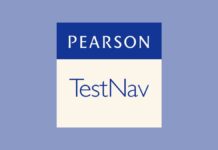As a consequence of the COVID-19 pandemic, more and more businesses allow their employees to work remotely. Oftentimes, it is the only option available, as the coronavirus is still ravaging many regions all around the world. Surprisingly, it doesn’t mean that the efficiency of those who work from home is lower – quite the contrary.
Still, even though your employees might not have problems dealing with the same workload, it doesn’t mean that you have nothing to worry about. The night is dark and full of hackers, which means that you should take appropriate steps to protect your company from cyber security threats. In a moment, we’ll discuss how your employees might be inadvertently putting your company in danger, and how to prevent that by using monitoring software.
What Are the Most Common Cyber Security Threats?
If you are running a highly successful company, there is a risk that one of your employees will sell your company secrets for a profit. Although it is certainly a possibility, in this article, we’ll assume that all of your workers have no bad intentions. However, it doesn’t mean that their actions won’t have negative consequences for the company.
Phishing. According to the experts at bulletproof.co.uk, it is one of the popular methods used by hackers to gain access to company accounts, which could lead to confidential data being leaked or destroyed.
It involves emails that are supposedly sent from the government officials, platform administrators, or high ranking employees from the same company, typically asking for usernames and passwords. Especially when it is the latter, employees working entry-position jobs might feel pressured to provide such data, out of fear of the consequences for disobeying their superiors.
Weak passwords. It doesn’t matter what type of business you are running – the chances are, each one of your employees has accounts on several different platforms related to their work. Unfortunately, we often underestimate the frequency of hacker attacks, and as a result, we think that any password will do. We forget to consider the fact that gaining access to private correspondence could result in third parties learning about company secrets, which could lead to blackmail.
Malware. Hackers could ask for the password directly, or they might use other means of achieving the same goal. Instead of pretending to be a figure of authority, they could send emails with links to malicious software. We have probably heard dozens of times that you shouldn’t open links from people you don’t know, but it’s not that we don’t know about this threat; rather we switch to the “autopilot” mode and realise what we’ve done when it’s already too late.
How Could Employee Monitoring Software Protect You From Those Cyber Threats?
Now, eliminating all possible cyber security threats won’t be possible, though thankfully, employee monitoring software could help deal at least with most of them. We could use the analogy of the panopticon, with your employees being more careful when there’s a possibility that they are being watched. However, you don’t want your employees to feel stressed or feel like they are in prison, even the one with glass walls.
Instead, with the help of the employee monitoring software, you could implement automatic scanning of all files that are being downloaded, thus reducing the possibility of malware being inadvertently installed on a computer of one of your employees.
The access to infected websites could be blocked so that even if your employees receive emails with malicious content, their browser simply won’t load up the site. At the same time, you could also block websites that don’t threaten the cyber security of your company, but which distract your employees from focusing on their work.
Another way of protecting your company against hacker attacks is by setting up the password requirements to make them harder to break. Even though hackers usually use more sophisticated methods, such as the ones that we have previously mentioned, they could also attempt to hack accounts using brute-force attacks.
In such a case, there is no way of preventing this situation from happening in the first place, though creating long passwords, ideally being made of random characters, would make such an attack less likely to succeed.
Conclusion
We often hear about hacker attacks targeting large corporations, which is why if you are running a small business, you might think that it couldn’t possibly happen to you. Unfortunately, hacker attacks are more frequent than we think; it’s just that often we don’t even notice that something is wrong.
Try hard as you might, you won’t be able to eliminate every possibility of a cyber security threat. However, with the help of employee monitoring software, the chances of a data leak or identity theft are much lower.




































 Online casino
Online casino
